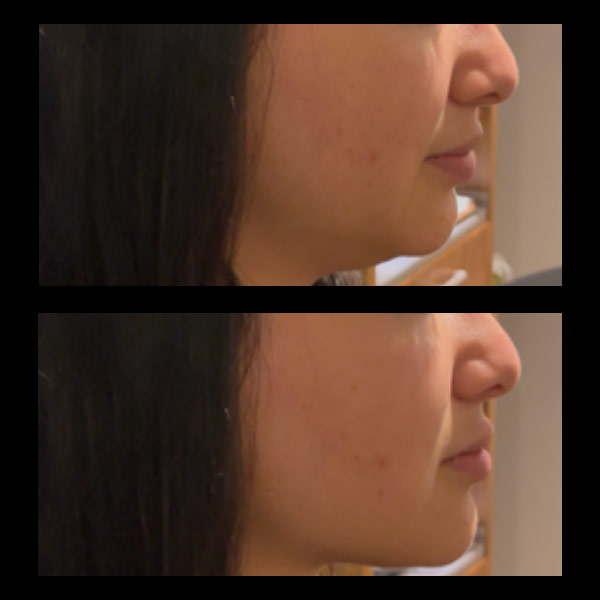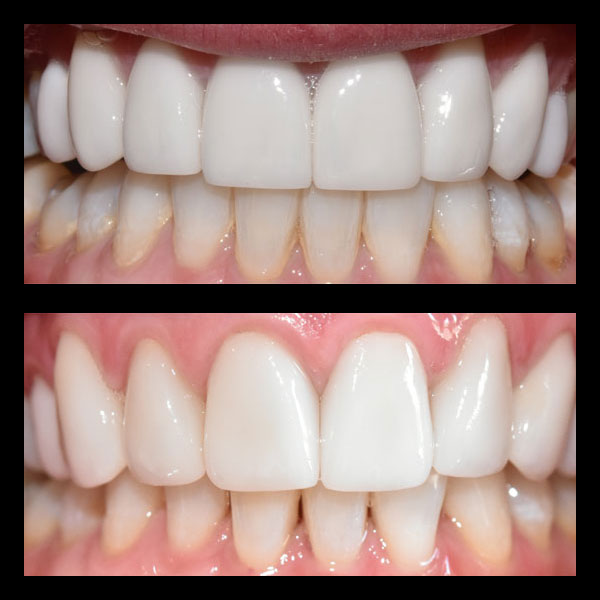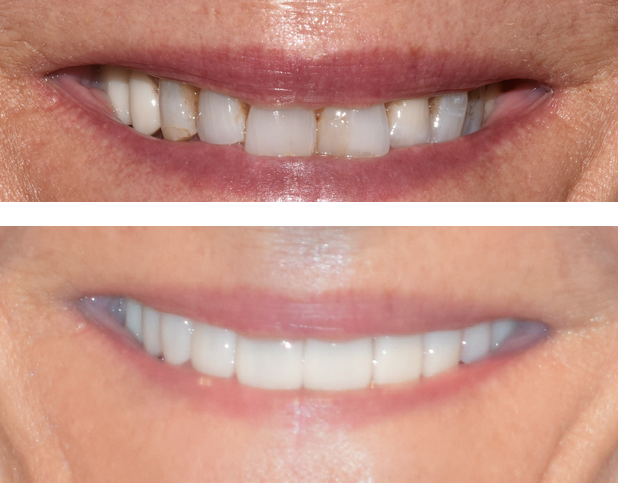Precision, Clarity, and Confidence in Your Dental Treatment Plan
At Incredible Smiles, we believe that exceptional dental care is born from a blend of artistry and scientific innovation. While skill and experience are paramount, the tools we use are critical to delivering the outstanding results our patients deserve. Traditional dental methods have served well for decades, but modern technology allows us to see your oral health in a completely new dimension. One of the most transformative technologies in our practice is 3D cone-beam computed tomography, or CBCT.
This advanced imaging system moves far beyond the flat, two-dimensional views of standard X-rays, providing us with a crystal-clear, 3D model of your anatomy. This detailed perspective is fundamental to our approach, enabling us to plan complex procedures with unmatched accuracy and ensuring your treatment is as effective, safe, and comfortable as possible.
What is 3D Cone-Beam Imaging?
Cone-beam computed tomography (CBCT) is a state-of-the-art imaging technique that captures a complete picture of your mouth in a single, quick scan. In less than a minute, this non-invasive machine rotates around your head, using a cone-shaped X-ray beam to gather hundreds of images. Sophisticated software then stitches these images together to construct a precise, interactive 3D digital model of your teeth, bones, nerves, and soft tissues.
Think of it as the difference between looking at a photograph of a building and having a complete architectural blueprint. While a 2D X-ray shows us shadows and outlines, a 3D cone-beam scan reveals depth, volume, and the exact spatial relationships between every structure in your jaw. This insight is invaluable for accurate diagnosis and meticulous cosmetic and restorative treatment planning.
The Unparalleled Benefits of a 3D View
Adopting CBCT technology is about more than just having the latest equipment; it’s about elevating the standard of care and improving patient outcomes. The benefits are felt across every stage of your dental journey.
Unmatched Diagnostic Accuracy
A 3D view eliminates guesswork. It allows us to see underlying issues that are simply invisible on a flat X-ray, such as the exact location of an infection, the precise shape of a root canal, or the density of the jawbone. This comprehensive view ensures your diagnosis is correct from the start.
Enhanced Treatment Safety
For procedures like dental implant placement, knowing the exact location of critical nerves, sinuses, and blood vessels is essential. CBCT allows us to create a virtual map of your unique anatomy, so we can perform surgery with incredible precision and minimize any risks.
Predictable and Efficient Outcomes
With detailed 3D treatment planning, we can digitally map out every step of your procedure before we even begin. This means fewer surprises during treatment, more efficient appointments, and results that closely match the planned outcome. This is especially crucial for complex cases like a full mouth reconstruction.
Key Applications in Modern Dentistry
3D cone-beam imaging is not reserved for just one type of treatment. Its versatility makes it a cornerstone technology across many of our dental services.
Dental Implants
CBCT is the gold standard for implant planning. It allows us to measure bone volume and density to ensure you are a good candidate, select the perfectly sized implant, and plan its placement at the optimal angle for stability and aesthetics.
Orthodontics
For treatments like Invisalign®, a 3D scan provides a complete picture of tooth roots and jaw structure, leading to more predictable and efficient tooth movement for a straighter, healthier smile.
TMJ and Airway Analysis
Understanding the intricate relationship of the temporomandibular joint (TMJ) is key to treating jaw pain. CBCT gives us a clear view of the joint, while also allowing for the analysis of airway passages, which is critical for treating issues like sleep apnea.
Complex Restorations
When planning for advanced restorative dentistry, such as multiple crowns or bridges, a CBCT scan helps us ensure that the foundation is healthy and the final result will be both functional and beautiful.
Traditional 2D X-Ray vs. 3D Cone-Beam CT
| Feature | Traditional 2D X-Ray | 3D Cone-Beam CT |
|---|---|---|
| Image View | Flat, two-dimensional image. | Fully three-dimensional, rotatable model. |
| Detail Level | Structures are superimposed, can obscure details. | Anatomically accurate, no distortion or overlap. |
| Scope of View | Shows a limited section of the mouth. | Captures teeth, jaw, neck, sinuses, and nerves. |
| Best For | Routine check-ups, detecting surface cavities. | Complex treatment planning for implants, TMJ, and surgery. |
Did You Know?
- A typical CBCT scan is incredibly fast, often completed in under 30 seconds.
- The radiation exposure from a dental CBCT scan is significantly lower than a conventional medical CT scan and is considered very safe for diagnostic purposes.
- This technology not only helps dentists but also empowers patients, who can see their own anatomy in 3D, leading to a better understanding of their treatment needs.
Advanced Dental Technology for the Boulder Community
Living in Boulder means appreciating a lifestyle that values health, wellness, and excellence. We believe your dental care should reflect those same standards. By investing in advanced technologies like 3D cone-beam imaging, Incredible Smiles brings a world-class diagnostic and treatment experience right here to our community. Our commitment is to provide care that is not only aesthetically beautiful but also built on a foundation of profound anatomical understanding.
Led by the expertise of Dr. Priya Uppal and Dr. Lori Kemmet, our team skillfully integrates this technology to craft personalized treatment plans. Whether you’re considering a complete smile makeover or addressing complex functional issues, you can feel confident that your care is guided by the most detailed information available today, all within our inviting, spa-like environment.
Experience the Future of Dentistry Today
See for yourself how advanced technology and expert care come together. Schedule a consultation to learn how a detailed 3D treatment plan can pave the way for your incredible new smile.
Frequently Asked Questions
Is a CBCT scan safe?
Yes. Patient safety is our top priority. Dental CBCT scans use a very low dose of radiation—significantly less than medical CT scans—to provide vital diagnostic information. We only recommend a scan when the diagnostic benefits are essential for safe and effective treatment planning.
Does the scan hurt?
No, the scan is completely painless and non-invasive. You will simply sit or stand still for a few seconds while the machine quietly rotates around your head. There is no discomfort involved.
Why might I need a 3D scan instead of a regular X-ray?
While routine X-rays are perfect for general check-ups, a 3D scan is recommended for complex situations where a detailed, multi-dimensional view is necessary. This includes planning for dental implants, diagnosing TMJ disorders, assessing impacted teeth, or preparing for a full mouth reconstruction.
Will my insurance cover a 3D cone-beam scan?
Coverage for CBCT scans can vary depending on your insurance plan and the medical necessity for the scan. Our team is experienced in navigating dental insurance benefits and will be happy to assist you in understanding your coverage and filing claims.
Glossary of Terms
Cone-Beam Computed Tomography (CBCT): An advanced imaging technology that uses a cone-shaped X-ray beam to create a precise, three-dimensional (3D) digital model of the teeth, jaw, and surrounding facial structures.
Treatment Planning: The comprehensive, step-by-step roadmap created by a dentist to address a patient’s dental needs and achieve their desired oral health and aesthetic goals.
Physiologic Dentistry: A specialized area of dentistry focused on creating and maintaining a harmonious balance between the teeth, jaw joints (TMJ), and the muscles of the head and neck for optimal function and comfort.
Restorative Dentistry: A branch of dentistry focused on repairing or replacing damaged or missing teeth to restore their function, health, and appearance. Services include fillings, crowns, bridges, and implants.








